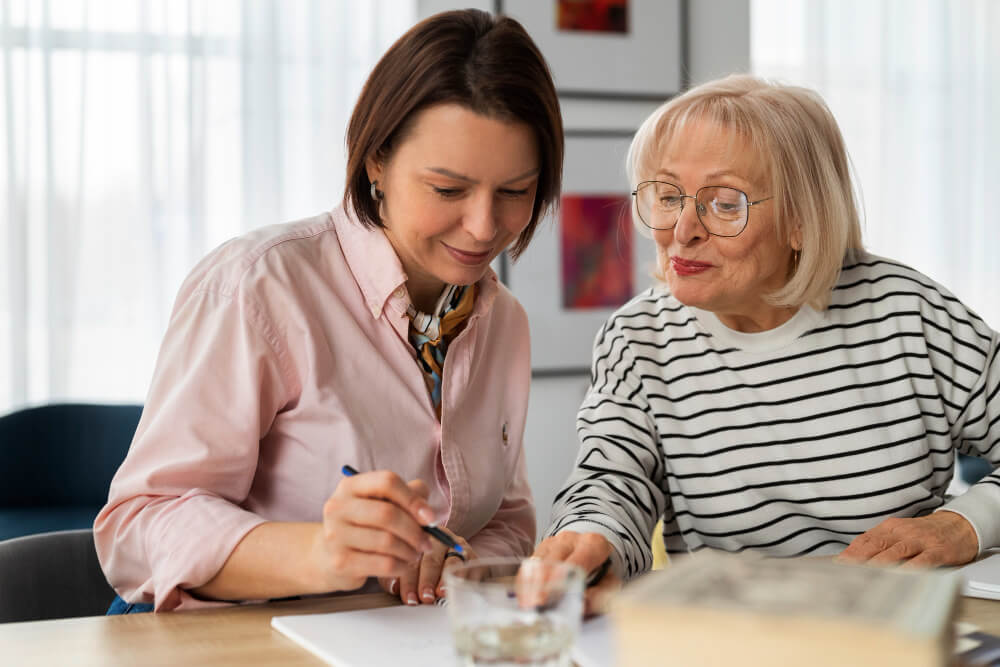The number of patients needing special Senior Memory Care is increasing at an alarming rate. One such rapidly growing requirement of special memory care is for dementia and Alzheimer’s patients.
As per recent research, currently, more than 55 million people have dementia around the globe! One of the disheartening facts is that there is no cure for these dementia and Alzheimer’s patients.
However, proper care, in which caregivers play a vital role, can enhance patients’ life spans. This blog will be of great help to caregivers, who will explore certain things they should know about memory care.
What Exactly is Senior Memory Care?
Being a caregiver of a dementia patient, you might be trying to learn a lot about special care for them. Long-term care designed to assist and care for people with dementia or Alzheimer’s disease is known as memory care.
The better the quality of memory care, the more chances of prolonged happy living for dementia patients. Therefore, along with various measures and steps, love and patience are the keys to enhancing the quality of memory care.
Crucial Things a Caregiver Should Know About Memory Care
It is a courageous decision if you have decided to take responsibility for being a caregiver. However, there are certain things that must be known before starting to care for elderly loved ones with dementia. So, let’s begin:
Maintaining a Healthy Lifestyle for People with Dementia
Eating healthy and staying active is indispensable for everyone, especially those with dementia. So, here are certain ways to keep dementia patients healthy and active:
- Involve dementia patients in household chores, cooking, and gardening.
- Adding music to activities can also be a great motivator for them.
- Making physical activities a routine. Shorter, more frequent physical activities work better.
- Walking together each day benefits the person with dementia and the caregiver.
- When it comes to diet, Nutrition plays an important role in maintaining brain health in Alzheimer’s Patients. Prepare easy nutritious meals for patients, like premade salads, to simplify mealtimes.
- Moreover, giving them choices about what to eat can make meals more enjoyable for them.
Ensuring Safety at Home for People with Dementia
Dementia patients are more prone to injuries and accidents as they have become physically and mentally feeble. Consider the following ways to ensure their safety at home:
- Ensure at least one handrail is on the stairs to get support.
- Ensure all rooms and outdoor areas have good lighting.
- Additionally, the edges of the steps should be marked with brightly colored tape to improve visibility.
- Insert safety plugs into unused electrical outlets & consider safety latches on cabinet doors.
- Remove unused items, such as small rugs, electrical cords, and other items that may cause a person to fall.
- Hide or lock up cleaning & household products, such as paint thinner and matches.
Communicating and Dealing with People Suffering from Dementia
Communication and behavior changes are common in people with dementia. When they become agitated, talking to dementia patients calmly and listening to their concerns is essential. Let’s see a few more tips:
- Respecting personal space helps them feel more comfortable and less anxious.
- Keeping familiar objects and photographs around the house can also provide a sense of security and comfort.
- If they don’t remember you, gently remind them who you are without making them feel pressured.
- Encouraging two-way conversations for as long as possible can help maintain their communication skills.
- If verbal communication becomes challenging, consider engaging them with familiar activities, such as looking through a photo album or reading their favorite book.
How to Set up a Daily Routine for Dementia Patients?
Maintaining a routine is one of the best parts of memory care. Regularity helps the person with dementia know what to expect and helps them continue to do things independently. Doing so will also make them feel better about themselves. Here are seven simple steps to set up a daily routine for your loved one with Dementia:
- Normal Tasks: Establish a routine for bathing, dressing, & eating for them.
- Make To-Do-Lists: Assist the person in writing down to-do lists, appointments, and events.
- Schedule Activities: Plan activities they enjoy and try to do them consistently each day.
- Let Them Do the Tasks: Allow the person to do as much as possible when dressing or bathing.
- Communicate Gently: Be gentle while explaining each step as you help them bathe or dress.
- Planned Meals: Serve meals in a familiar place & give them ample time to eat.
- Set Reminders: A system of reminders for regular medication intake should be considered.
Tips for the Caregivers to Take Care of Themselves
For caregivers, taking care of oneself is just as important as caring for someone with dementia. Here are a few tips to prevent yourself from being exhausted:
- Maintain consistency in consuming a healthy diet.
- Join a caregiver support group to get emotional and physical sustenance.
- Taking breaks and keeping up with hobbies can prevent burnout.
- Spend time with your friends and take time out for your favorite activities.
- Exercising regularly and practicing meditation can help reduce stress.
Boost the Quality of Senior Care-Giving with Quail Crest Memory Care
We understand it is challenging to balance caregiver responsibility with the hustle of a busy world. No worries! Now, enhance the quality of caregiving! Search for Quail Crest memory care near me and let them be a caregiver of your loved ones so that they lead their happy lives!
Conclusion
In this hustle-and-bustle lifestyle, taking responsibility for a dementia patient cannot be complimented with words. Being a caregiver is not easy, and thus, it is rewarding. However, before taking up the responsibility of a caregiver, one must be aware of the essential pillars of memory care.
A few of them are maintaining a healthy lifestyle, ensuring safety at home, dealing with dementia patients, and setting up a routine. However, a caregiver should not lose himself completely by immersing himself in the care process. As a caregiver, care for yourself so that an enhanced quality of care can be given to your loved ones suffering from dementia.





